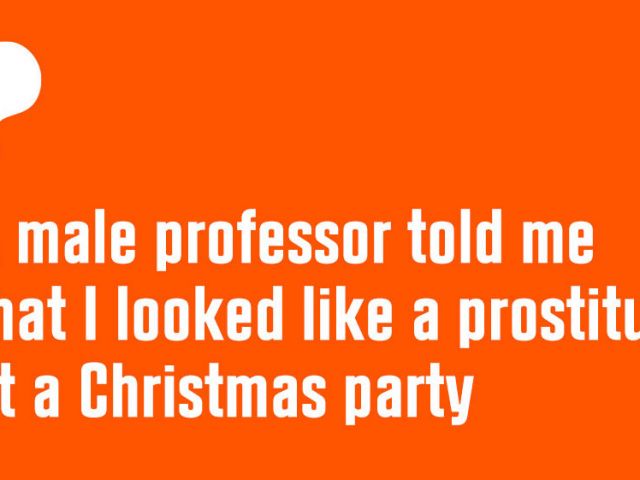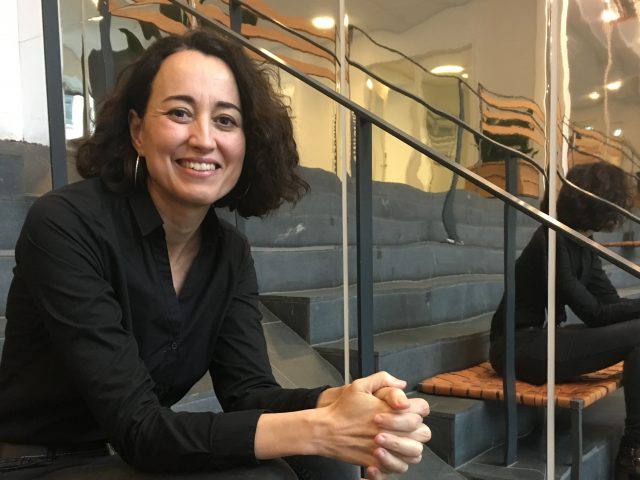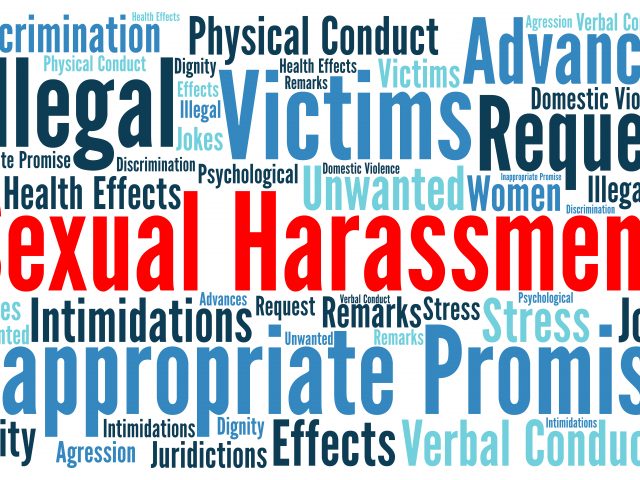Sexism at CBS: “We have not seen many reports, but perhaps we will now”

(Photo: Anna Holte)
The scale of sexism at CBS may be greater than the official figures suggest, a Senior Shop Steward and the Head of HR at CBS explain. A cultural change is needed at CBS, says the President of CBS, after more than 689 researchers in Denmark have signed a letter against sexism and shared experiences from academia.
So far, 689 researchers at Danish universities and university colleges have signed a letter stating that they have experienced sexist behavior towards themselves or others in academia. 96 of the signatures are from current and previous CBS employees, emphasizing that the scale of the problem of sexism is greater than suggested by the latest CBS job satisfaction survey.
On Friday October 9, when the list of names and anonymous stories was published in the Danish newspaper Politiken, the President of CBS, Nikolaj Malchow-Møller, sent out a letter to all employees stating that: “These stories are eye-opening and reveal what we had feared, an even larger problem – also at CBS – than what our own surveys have shown”. (Read the full letter at the bottom of the article)
In an email to CBS WIRE, Nikolaj Malchow-Møller elaborates on this fear.
“After we have witnessed women coming forward in various sectors in Denmark over the past couple of weeks, as well as the global #MeToo movement over the past couple of years, one might fear that the problem among employees in our sector is more widespread than we have been able to register,” he writes and continues:
“We have continuously investigated this with the tools we have, such as our job satisfaction surveys with anonymous answers, work place evaluations, our whistle blower scheme, General Consultation Committee and possibilities of counselling and help through HR. But we need to change the culture in society, and we need people to raise their voices. In one sense, the signature petition and stories constitute an important event that helps us all in the right direction.”
In the latest CBS job satisfaction survey, 14 out of 1,140 replied that they have experienced unwanted sexual behavior. However, 36 percent answered that they had experienced the offensive behavior from ‘Others’ – implying that it was not from a colleague, manager, subordinate or student.
“Having read some of the examples of sexism shared by the researchers, I’m actually surprised how little we get to hear about cases of sexism in HR. Whether they are being dealt with before they come to us is a good question, but there are signs they are not,” says Anders Lauesen, Head of HR at CBS, and he suggests why this might be the case.
“Maybe if you are in a small department, it can be difficult to answer yes to some of the questions about offensive behavior without revealing your identity, and that could create a strained atmosphere. So maybe people are only comfortable about reporting unwanted sexual behavior at bigger departments.”
Ole Helmersen, Senior Shop Steward at CBS, explains that during his time as a shop steward, he has dealt with almost no cases of sexism among the VIP personnel. Yet, he is not surprised by the long list of signatures from researchers who have experienced it one way or the other, and refers to a large survey that mapped the problem of unwanted sexual behavior among students.
“The results from that also pointed out a problem of sexism among employees, so what we are seeing now does not surprise me. However, when we look at the job satisfaction survey, where we ask about unwanted sexual attention, the figures are not alarming. Of course, one incident is one too many, but compared to the other universities, we are at the low end. So there are probably some hidden figures that we are unaware of,” he says.
“We have a collective responsibility”
In the letter Nikolaj Malchow-Møller sent out to CBS employees, he expresses his support for the researchers who have dared to come forward with their stories and sign the letter, but he also calls for changes.
“The fact that they come forward together helps us understand what we are up against so we can take action. For their sake, for our university’s sake and not least to help the many people who are afraid or do not wish to come forward. We have to make it safer to draw the line and talk about our experiences. This way we can continue to learn more about this problem to help the individual and work to change the whole culture, just as we in the past years have worked to change the culture among our students – because some of them had the courage to say no and talk to us about their experiences during intro week,” he wrote.
If employees at CBS experience or witness unwanted sexual behavior, they have several options. They can contact their immediate manager, talk to a shop steward, reach out to HR, use the CBS whistleblower scheme or make anonymous use of the psychological counselling CBS offers.
Ole Helmersen believes that the machinery for dealing with the cases must be in place, but he hopes that colleagues, especially experienced ones in permanent positions, will become better at calling out the offensive behavior when they see or hear about it.
“We need to work on our culture and the structures that support this kind of unacceptable behavior, and one way of doing that is for the senior faculty to call out the behavior when they see it. We have a collective responsibility for the work environment, especially towards younger faculty members. So if you observe something, don’t stand back, say something. We need that to happen too,” he says.
Anders Lauesen hopes that the extra focus on sexism will boost the work on and discussions about diversity and inclusion at CBS.
“For a long time, we have worked with inclusion and diversity at CBS. However, we need more of it, because whatever we do, we cannot completely avoid this idiotic behavior. The people behind this behavior are super-spreaders. They have a tiresome way of expressing themselves towards many, and they should not be allowed to go free without being called out,” he says.
The more we know – the better we can act
In the letter to CBS’ employees, Nikolaj Malchow-Møller writes that Senior Management will be in dialogue with the representatives from the initiators behind the signature petition, in order to “learn more about where and when sexist conduct takes place”.
“Because are we as leaders – from top management to middle managers and academic leaders – prepared to handle sexist conduct? How can we make it easier and safer to draw the line in future and come forward and report sexist behavior? Are our employees familiar with our current offers for help and reporting? Does anything at CBS or our organizational framework promote or protect an unhealthy culture? Are we as leaders and employees being completely clear as to the behaviour we expect from each other and the behaviour we do not accept from each other – so we can change this culture?
The more we know, the better we can act,” he writes.
Ole Helmersen knows that cultural change will not happen overnight, but he hopes that the local managers will keep an extra eye out if they have a feeling that someone is “misusing their power or behaving offensively”.
“There are probably people here at CBS keeping their experiences to themselves because it’s too difficult to share with anyone, or maybe they just don’t feel up to it. And it’s not supposed to be like that. And that is something we need to work on at CBS.”








































































































































Comments